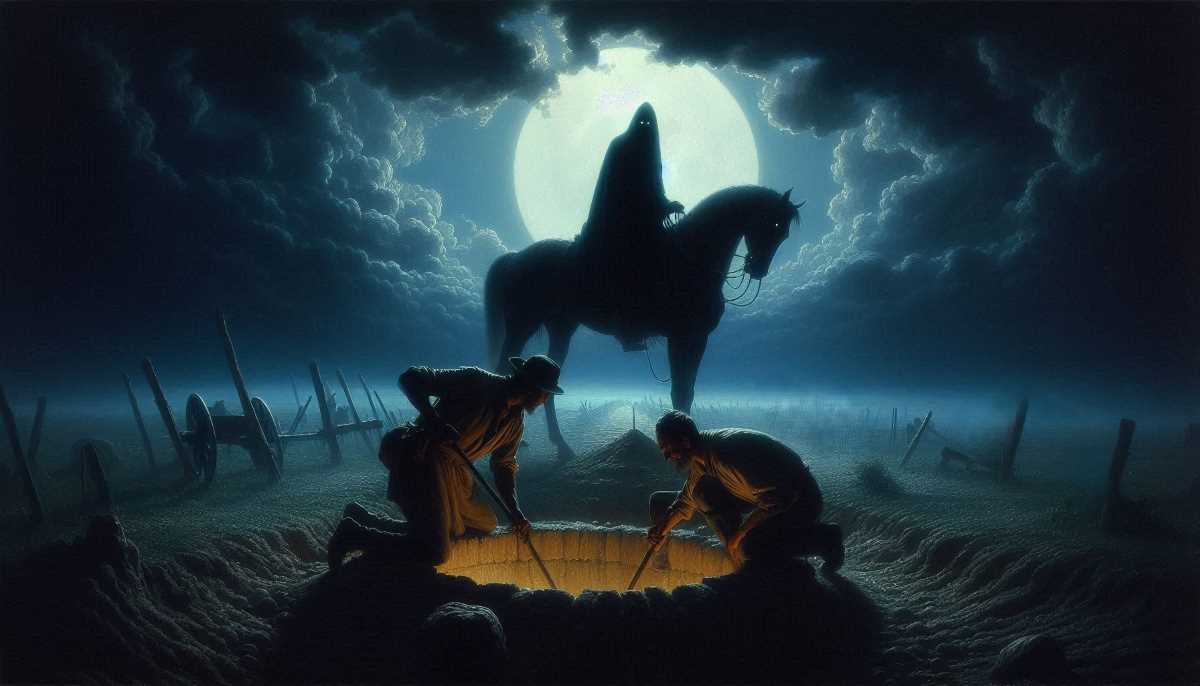The Treasure of the Damned
In 1870, Don Agapito Coyote and his companion Manuelito Llanos arrive in Las Vacas and settle in a mysterious house in Las Chimeneas. They soon discover that the house is haunted by a ghostly charro who appears every Friday night, guarding a treasure buried in the corral.

In the rather dreadful year of 1870, a time when misfortune seemed to hang in the air like smoke from an unattended fire, two unlikely travelers arrived in a place so forgotten by the world that it barely had a name: Las Vacas. The first of the pair was Don Agapito Coyote, a man who, in later years, would go down in the local chronicles as a figure of almost mythical proportions. The other was Don Manuelito Llanos, a man whose illustriousness, if any, was entirely lost to the sands of history. His most notable quality, other than a name that rolled off the tongue like a lazy afternoon breeze, was his companion, a sharp, quick-witted black lad from San Luis Potosí who had the unenviable role of being Agapito's lackey.
Picture them now, riding into town on donkeys so tired they resembled more of a child's neglected toy than actual animals. These creatures plodded down the nameless streets, their hooves barely making a sound on the dusty ground. Las Vacas, or more specifically the neighborhood of Las Chimeneas, was a place so old it seemed to belong more to the land than the people who lived there. Its history was rich with whispers of the Spanish mining their fortunes in the form of gold and silver, turning their findings into wealth amid the towering chimneys that gave the area its name. Las Chimeneas had been the epicenter of a bygone rush, the silver washed in the banks of the Las Vacas stream like it was nothing more than glittering riverbed sand.




